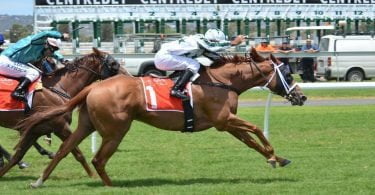There is an old medical saying that goes along the lines of “If you hear hoofbeats, think horse, not zebra”. It means that if you are posed with a problem that seems confusing or hard to explain you should go for the obvious and not for the unusual.
For too long in Professional Cycling outstanding performances have usually led people, rightly in an all too high proportion of cases, to believe the horse a doper and the zebra a clean rider. Chris Froome has been the latest member of the Peloton to find this out to his cost after his treatment at the hands of the French cycling public this week.
Froome and members of Team Sky have been called ‘dopers’, punched, spat at and had urine thrown at them after sections of the French media and former professionals, many of who have served doping bans, began to question the clean nature of Froome and his teammates’ rides.
This is not new territory for Team Sky after Sir Bradley Wiggins was hounded by sections of the media during his 2012 Le Tour victory which led to his now infamous press conference in Porrentruy after Stage Eight of that year’s Tour where he branded his critics c**** and said that their mud throwing justified their “bone idleness”.
Irremovable stain?
History is on the side of those who believe that doping is endemic in cycling. Lance Armstrong’s seven Tour De France victories between 1999 and 2005 now appear as an ugly stain on the history of cycling, a stain only darkened given that 20 of the 21 podium places during that period were taken by riders who subsequently failed doping tests or were involved in doping scandals.
How must the only clean rider in that period, Fernando Escartin who finished third in 1999’s edition of the Tour, feel? In three Tour De France’s between 1997 and 2000 and two Vuelta a Espana’s in the same period, Escartin was the top ranked rider in all five Grand Tours never to have been implicated in a doping scandal.
In that period Escartin finished behind a number of riders implicated both directly and indirectly in doping such as Lance Armstrong, Alex Zulle and Richard Virenque. And it is some of these former riders who have been the most vocal critics of Chris Froome and Team Sky.
Cedric Vasseur, a teammate of Lance Armstrong’s during his tainted US Postal days openly questioned Froome’s integrity live on French television while Laurent Jalabert, who tested positive for EPO during the 1998 Tour, said Froome’s dominate ride on the first day in the Pyrenees was “uncomfortable to watch”.
The usual critics
This perhaps leads to one of the more important points about a lot of the anti-Froome, anti-Sky chatter doing the rounds: it is coming from the people you would expect it to come from. It is coming from Twitter keyboard warriors who feel that because past Champions have doped, current Champions are still doping.
It is coming from cycling fans let down by flawed heroes like Marco Pantani and Lance Armstrong. It is coming from riders who rode in a time where you had to dope to win. For people like Jalabert and Michael Rasmussen, who led the Tour in 2007 when he was booted out by his own team for doping violations, they know no different way to win other than to dope.
All this hate and abuse due to Laurent Jalabert idiotic ‘on another planet’ comment. He should be ashamed. #TDF2015
— ella (@eloltt) July 25, 2015
To go back to the original analogy if you have spent your whole career surrounded by horses why would you ever think zebra when you heard those hoofbeats? David Walsh, the Sunday Times journalist whose very public crusade against Lance Armstrong was a feature of the latter part of the Texan’s career, spent a year with Team Sky in 2013 and has never come out saying he saw any indication of doping.
And what is the evidence to say that Team Sky and their riders have been doping? Only one Team Sky rider, Jonathan Tiernan-Locke, has ever received a doping conviction which related back to his pre-Sky days, where he was subsequently sacked. Dave Brailsford, Team Sky’s coach, has always said that there is no place for dopers in Team Sky.
That has been backed up by his refusal to sign convicted doper David Millar to his Sky squad and the sacking of three members of the Team Sky backroom staff once their involvement in prior doping was established. Given Team Sky’s high-profile anti-doping stance and recent success they are one of the most tested teams in the Peloton and, as of yet, no riders have been found guilty of doping while with the team.
Dominance does not equate to doping
On the bike the evidence seems to boil mostly down to the fact that Froome and his team are so dominant that they must be doping, in some sort of weird throwback to the Lance Armstrong US Postal days. With so many previously dominant riders and teams subsequently tainted by doping allegations Team Sky seem to be doomed be association.
Until there is a decade, or maybe longer, of clean winners of the Tour De France any rider who seems dominant in the sport will be subjected to whispers about doping. On a personal level Froome’s dominant Pyrenean stage win also raised questions about how one man can be much stronger than anyone else. It was this win up to La Pierre Saint-Martin that prompted Laurent Jalabert to say that Froome was ‘on another plant’, cycling innuendo for doping. However his victory that day was much more to do with a strong team executing a well-rehearsed plan with Froome finishing off by powering away from his rivals.
All hail the 100% clean champion @chrisfroome – there will always be haters! Don’t let them define you… Enjoy the party @teamsky
— Paul Morgan (@PaulMorganrugby) July 26, 2015
Further doubt was cast on the possibility of Froome’s performance when power data was leaked from his climb up to Mont Ventoux in 2013. Team Sky understandably refused initially to disclose whether the information was true or what the actual readings were; after all you wouldn’t ask Manchester United for their tactics before kick-off, and this black hole of information was filled with wild speculation regarding the legitimacy of Froome’s performances. Eventually a very annoyed Team Sky did reveal the actual power output, on the second rest day last week, in an attempt to end the speculation and prove that the Kenyan-born British rider’s performance was legitimate.
Overshadowed by allegations
This year’s Tour has been one of the most exciting to watch in recent years and Froome one of the most deserving champions however it has all been overshadowed by the constant accusations thrown at Froome. Professional cyclists seem now to be guilty until proven guilty of doping thanks to the years of wild drug taking in the Peloton.
While this may overshadow Froome’s win in the short-term for the good of cycling you have to hope that in time Froome’s two, and possibly more, wins mark the start of a new clean period in professional cycling. The more riders that win clean then the more the recent decades become consigned to the past and riders like Froome are treated like the Champions they are, not drug takers who haven’t been caught yet.








